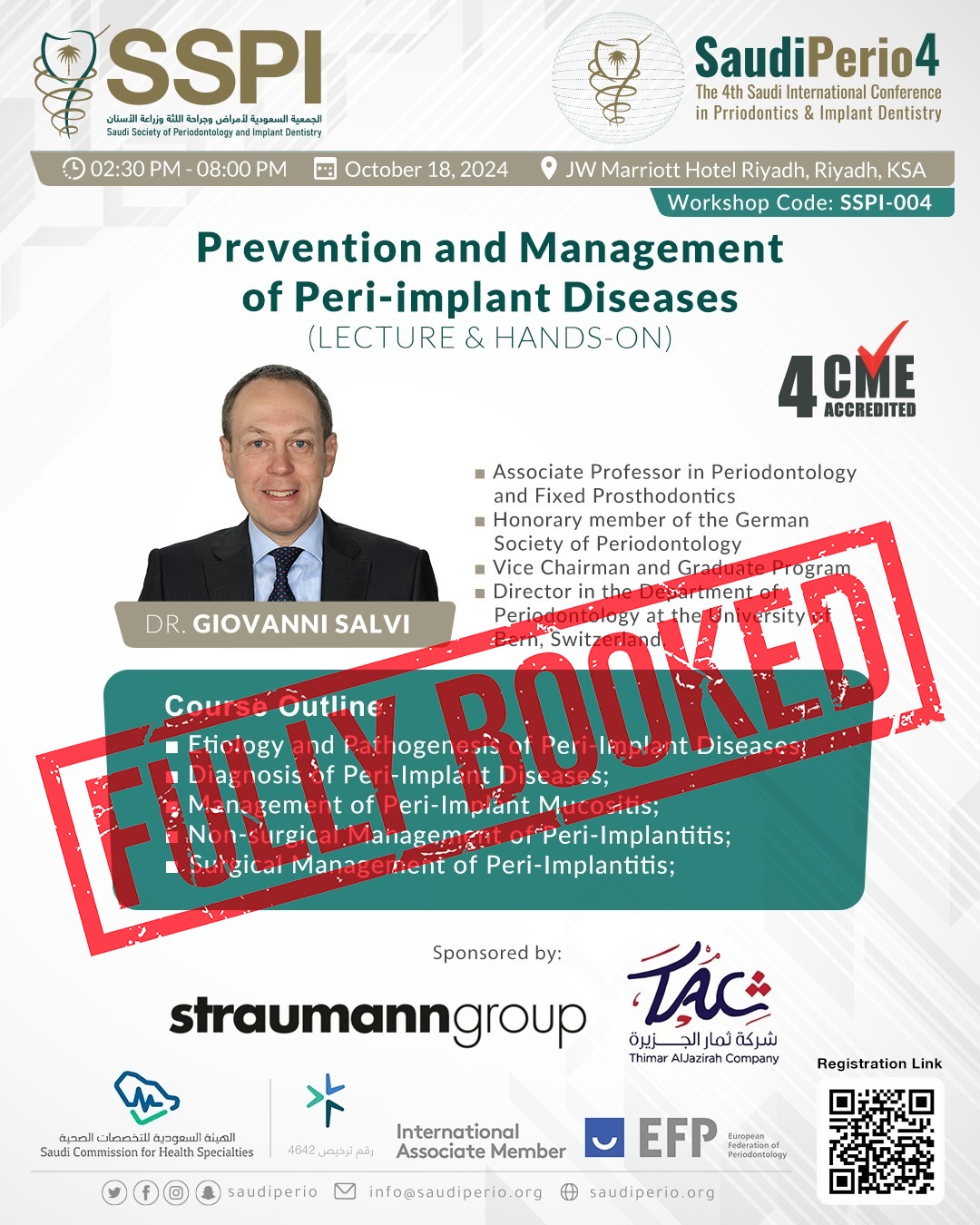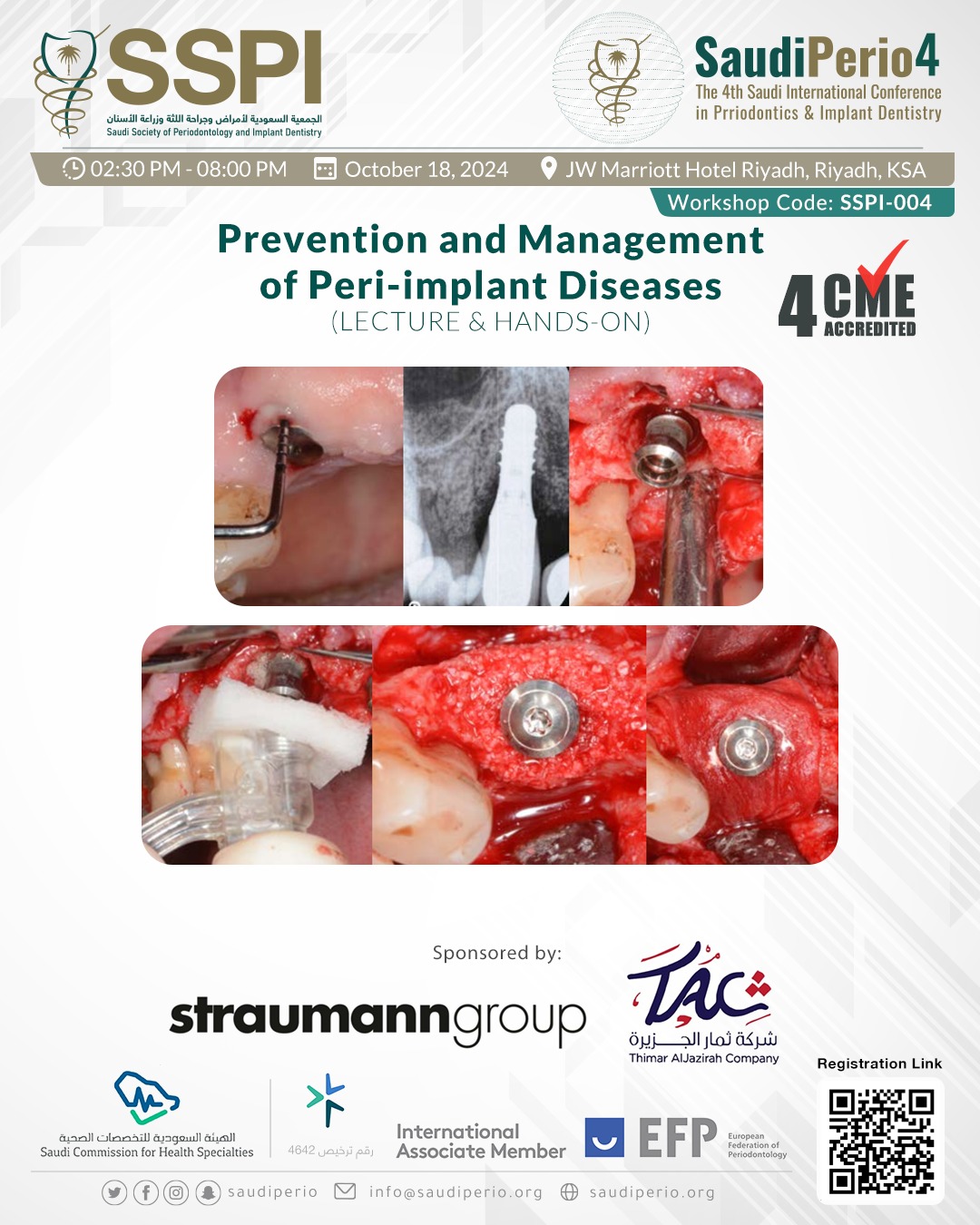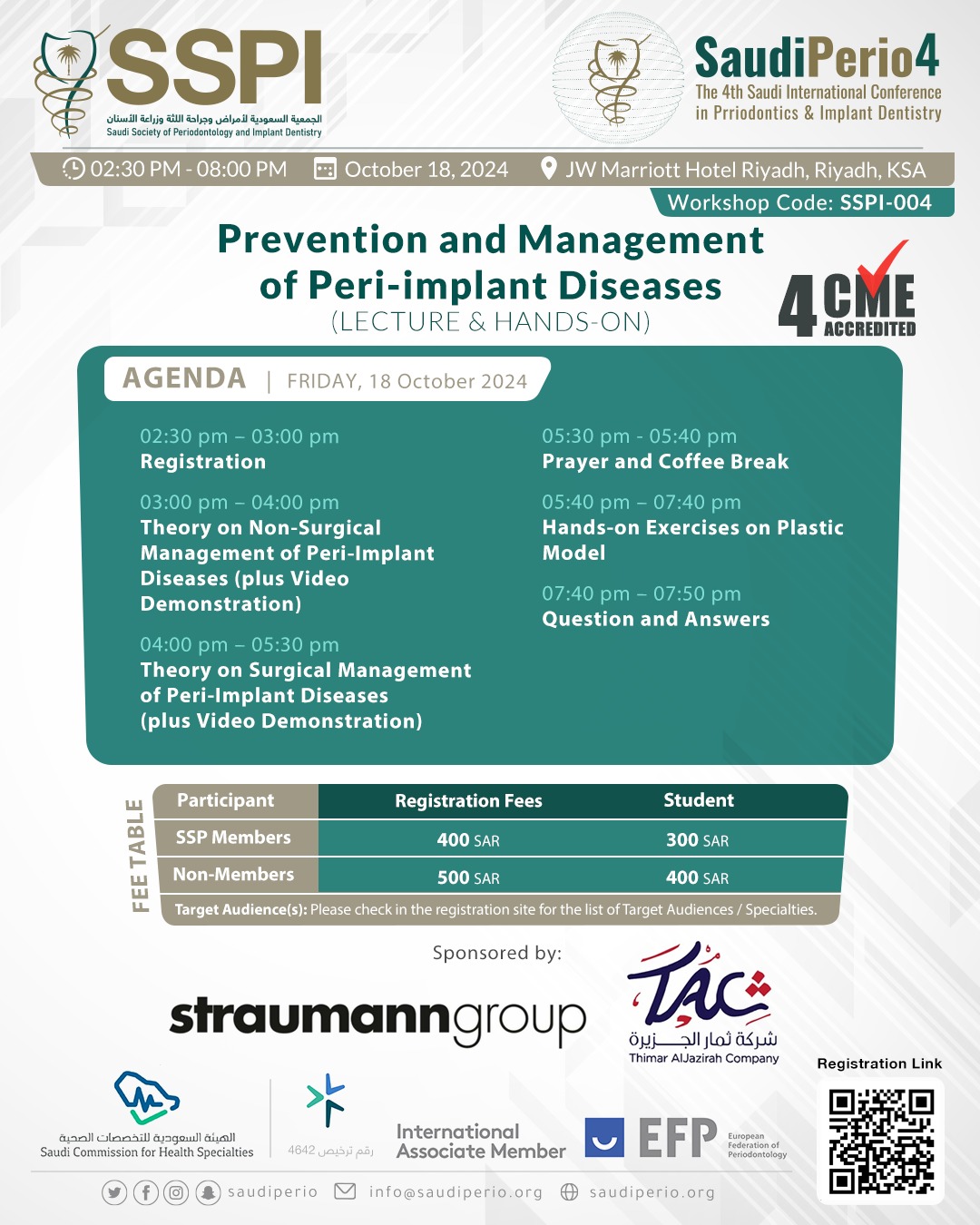Upcoming Events / Prevention and Management of Peri-Implant Diseases



Prevention and Management of Peri-Implant Diseases
Workshop
Outcomes from longitudinal studies and systematic reviews have reported specific risk indicators such as history of periodontitis, insufficient width of keratinized and attached mucosa, lack of regular supportive periodontal/peri-implant therapy, and tobacco use history for the development of peri-implant diseases.
The etiological factors of peri-implant diseases are similar to those involved in periodontal diseases. Consequently, the treatment goals must be the resolution of peri-implant soft tissue inflammation and stabilization of the level of osseointegration. Conventional non-surgical treatment procedures of peri-implant lesions showed limited predictability. On the other hand, surgical interventions, whether resective or reconstructive, yielded more promising clinical and radiographic long-term outcomes.
This lecture aims to provide an evidence-based summary of risks, preventive aspects, diagnostic parameters, and treatment guidelines of the European Federation of Periodontology (EFP) in the management of peri-implant diseases.
Capacity
25 Person.
CME Hours
4 Hours.
Target Group
Oral Surgery, General Dentistry, Oral and Maxillofacial Surgery Periodontics, Prosthodontics, Dental Implant, Advanced General Dentistry, and Implantology Person.
Date & Time
18 Oct, 2024 - 02:30 PM
Location
JW Marriott Hotel Riyadh
